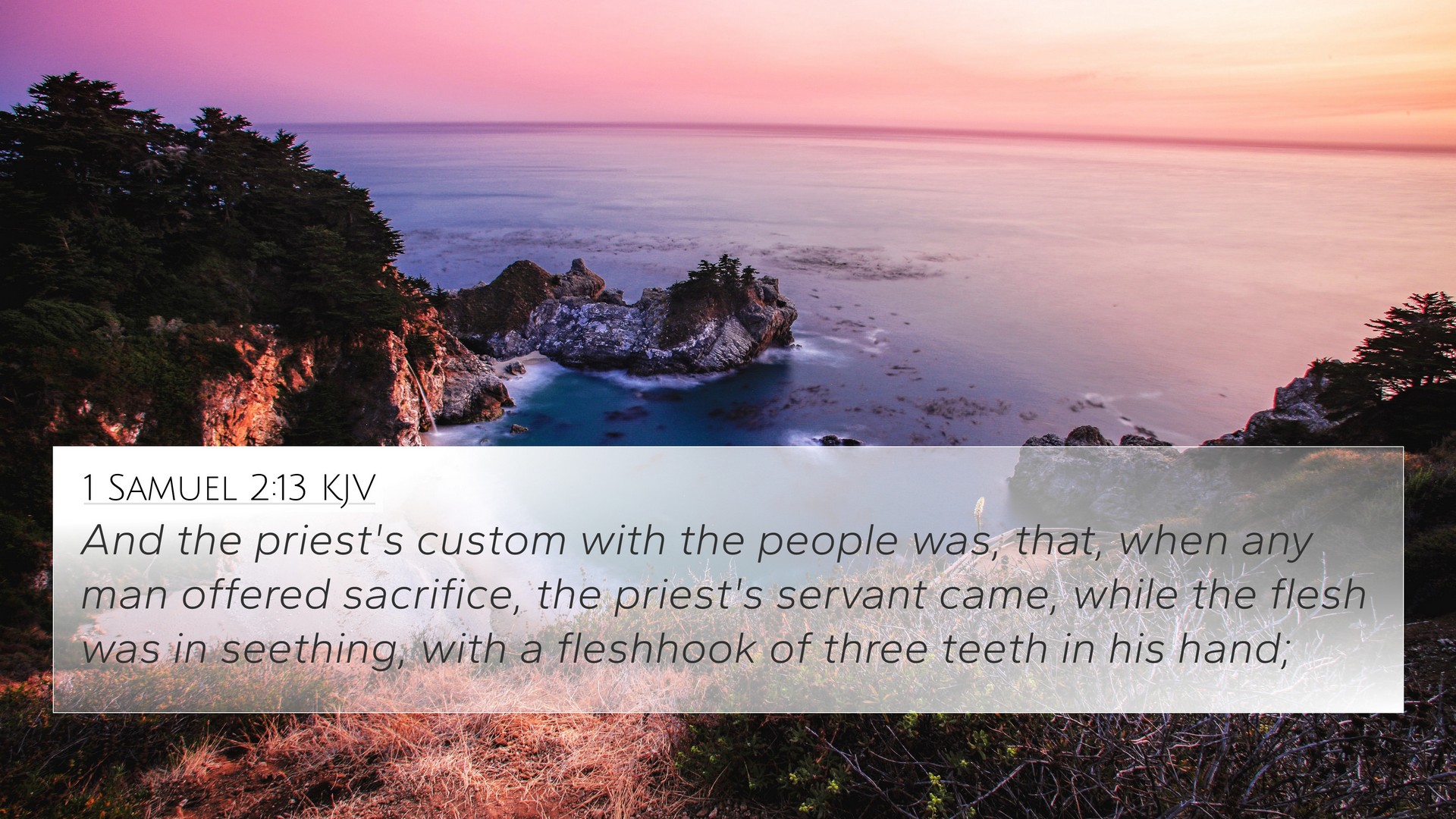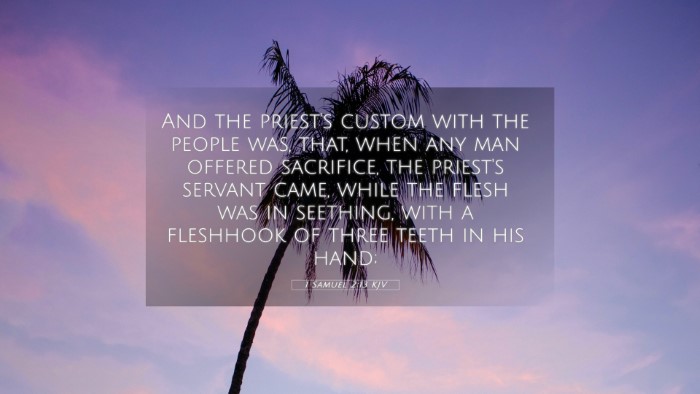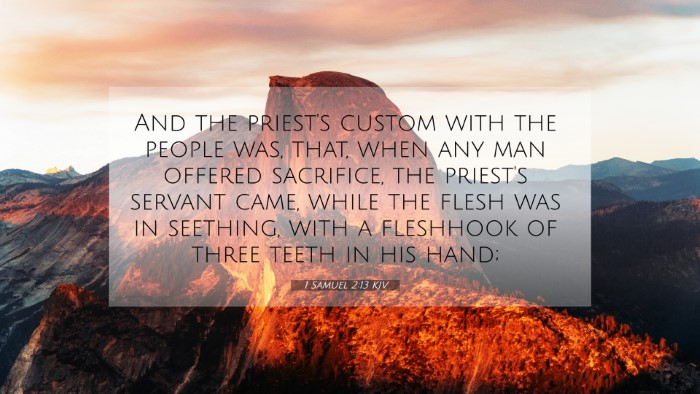Understanding 1 Samuel 2:13
Verse: 1 Samuel 2:13 - "And the priests' custom with the people was, that, when any man offered sacrifice, the priest's servant came, while the flesh was in seething, with a flesh-hook of three teeth in his hand."
Summarized Meaning
The passage addresses the improper practices of the priests during sacrifices at the tabernacle. The context reveals a significant concern regarding the corrupt behaviors of Eli's sons, Hophni and Phinehas, who, as priests, exploited their positions for personal gain, particularly in how they conducted sacrifices.
Commentary Insights
- Matthew Henry: Highlights the corruption of Eli's sons and their disregard for the law of Moses in how sacrifices were to be handled, emphasizing the seriousness of their misconduct in priestly duties.
- Albert Barnes: Notes the connection between the ceremonial law and the actions of the priests, pointing out that their actions led to a desecration of the sacrificial system, which was meant to honor God.
- Adam Clarke: Adds that this verse illustrates the greed and selfishness of the priests, using their authority to extract the best parts of the offerings selfishly, which was against God's ordinance.
Thematic Connections
This verse is deeply connected with several themes in the Bible, relating both to the integrity of spiritual leaders and the consequences of corrupt practices. Below are some significant points regarding its thematic analysis:
- Integrity in Leadership: The conduct of Eli's sons stands as a warning about the importance of character in spiritual leaders.
- God's Ordinances: The violation of God's laws regarding sacrifices draws a parallel with how the church is to honor God's commands today.
- Consequences of Corruption: Just as Eli's family's actions led to judgment and ultimate destruction, contemporary practices must adhere to divine standards to avoid severe repercussions.
Cross-References
This verse connects with several other scriptures that help elucidate its themes and teachings:
- Leviticus 7:30-34: Discusses the priest's share of the offerings.
- Deuteronomy 18:1-2: Enables the priests' entitlement to the sacrifices made by the people.
- 1 Samuel 2:12: Describes the wickedness of Eli's sons.
- Jeremiah 23:1-2: Warns against the shepherds who destroy and scatter God’s people.
- Malachi 1:6-8: Addresses the negligence of priests in offering acceptable sacrifices.
- Hebrews 5:1: Discusses the high priest's role and responsibilities.
- Acts 5:1-10: Illustrates the serious consequences of deceit in spiritual matters, akin to Eli's sons.
Applications for Today
1 Samuel 2:13 serves as an important reminder of the seriousness with which we should approach spiritual matters and the implications of corruption within the church. Here are some contemporary applications:
- Guarding against personal and organizational greed in church activities.
- Striving for honesty and integrity in leadership roles.
- Faithfully adhering to Biblical commands concerning worship and offerings.
- Recognizing the importance of accountability among spiritual leaders.
Conclusion
In conclusion, 1 Samuel 2:13 presents a critical view of the priestly conduct during sacrifices, serving as a cautionary tale regarding integrity and adherence to God's commandments. By studying this verse within its context and its cross-references, we gain a deeper understanding of the need for righteousness in spiritual leadership and the importance of honoring God's directives in worship.
Cross-Referencing Resources
For those interested in further study and understanding, several resources can help with Bible cross-referencing:
- Bible Concordance: A tool for locating specific verses and themes.
- Bible Cross-Reference Guide: Resources designed for easier navigation across similar themes.
- Bible Chain References: Systems that link verses with related meanings.
- Cross-reference Bible Study Methods: Approaches to examine connections and themes in-depth.



